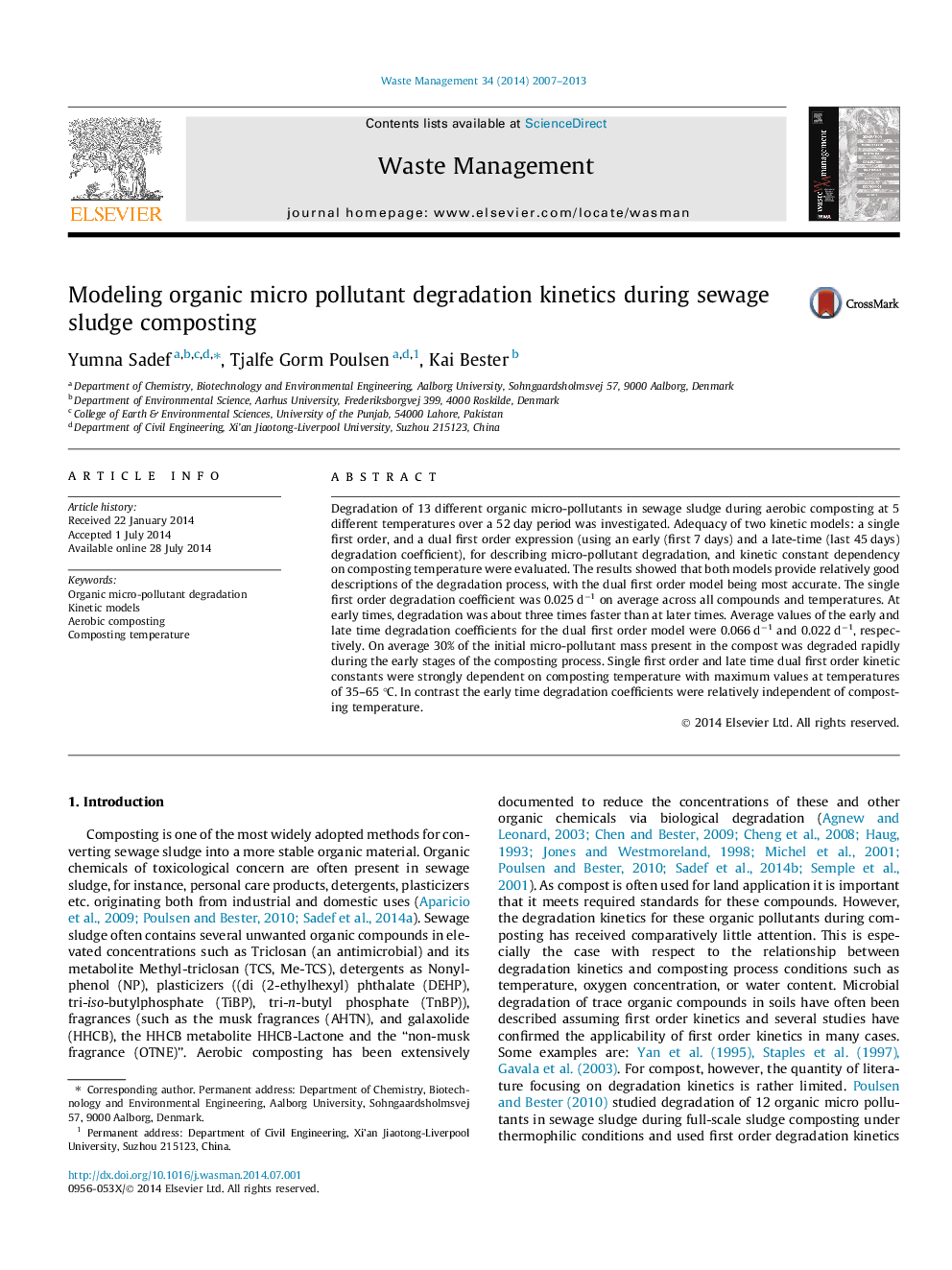| Article ID | Journal | Published Year | Pages | File Type |
|---|---|---|---|---|
| 6354753 | Waste Management | 2013 | 7 Pages |
Abstract
Degradation of 13 different organic micro-pollutants in sewage sludge during aerobic composting at 5 different temperatures over a 52 day period was investigated. Adequacy of two kinetic models: a single first order, and a dual first order expression (using an early (first 7 days) and a late-time (last 45 days) degradation coefficient), for describing micro-pollutant degradation, and kinetic constant dependency on composting temperature were evaluated. The results showed that both models provide relatively good descriptions of the degradation process, with the dual first order model being most accurate. The single first order degradation coefficient was 0.025 dâ1 on average across all compounds and temperatures. At early times, degradation was about three times faster than at later times. Average values of the early and late time degradation coefficients for the dual first order model were 0.066 dâ1 and 0.022 dâ1, respectively. On average 30% of the initial micro-pollutant mass present in the compost was degraded rapidly during the early stages of the composting process. Single first order and late time dual first order kinetic constants were strongly dependent on composting temperature with maximum values at temperatures of 35-65 °C. In contrast the early time degradation coefficients were relatively independent of composting temperature.
Keywords
Related Topics
Physical Sciences and Engineering
Earth and Planetary Sciences
Geotechnical Engineering and Engineering Geology
Authors
Yumna Sadef, Tjalfe Gorm Poulsen, Kai Bester,
